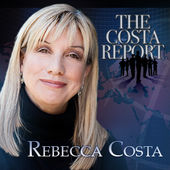HOW TO BUILD BUSINESS CREDIT AND SECURE FINANCING FOR YOUR STARTUP OR GROWTH VENTURE by Ty Crandall and Hemda Mizrahi
Business credit and financing expert Ty Crandall joined me on âTurn the Pageâ to...
Read Moreby VoiceAmerica | Sep 13, 2016 | Business | 0 |
Business credit and financing expert Ty Crandall joined me on âTurn the Pageâ to...
Read Moreby VoiceAmerica | Mar 17, 2016 | Business | 0 |
Financial Behaviorist Syble Solomon joined me on âTurn the Pageâ to discuss how her Money...
Read Moreby VoiceAmerica | Mar 4, 2015 | Business | 0 |
Dennis Kucinich Calls For End To Current âDebt-Based Monetary Systemâ Early this year, former...
Read More


